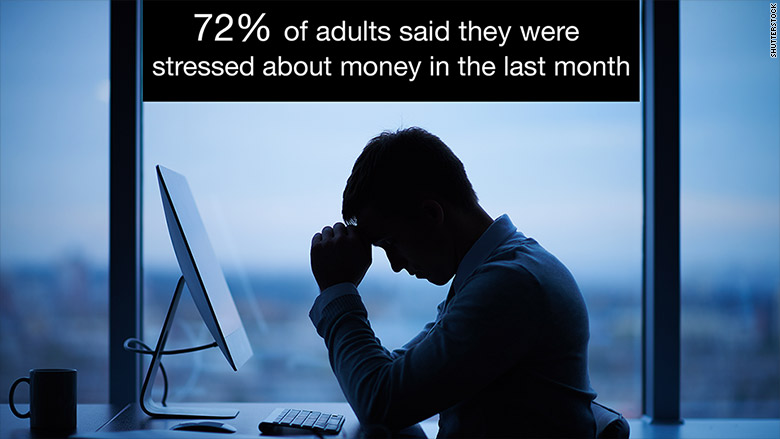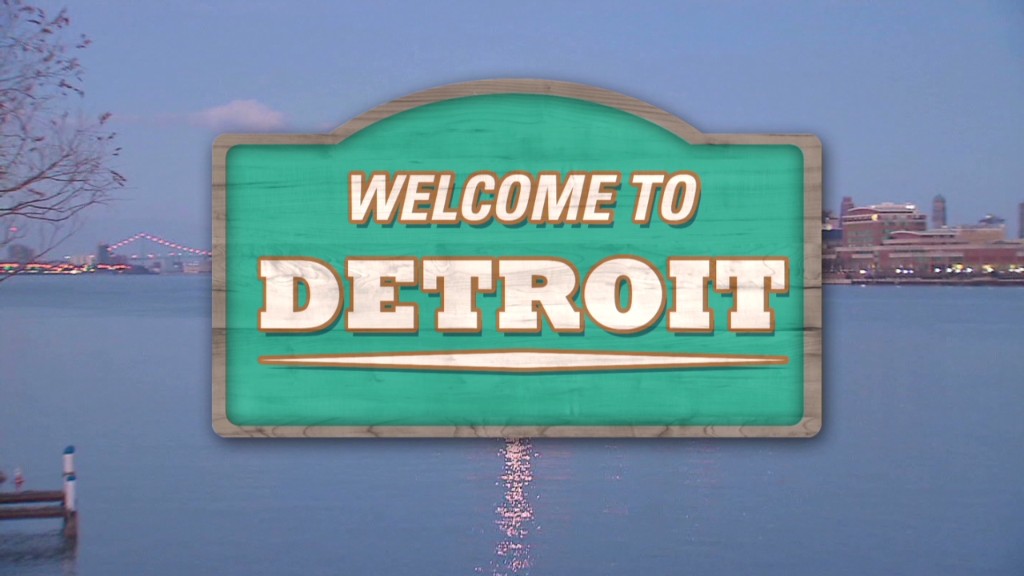
From student loan debt to rising health care costs, money continues to be the top source of stress for most Americans.
Despite an improving economy, nearly 90% of Americans surveyed by the American Psychological Association said the level of stress they are feeling about money has either remained the same or gotten worse in the last year, according to the group's annual Stress in America report.
Nearly three-quarters of the people surveyed said they had stressed about money at some point in the last month, while more than a quarter said they are stressed about money most or all of the time.
People living in lower-income households, parents of children under 18, Millennials and Gen Xers were among those most likely to report high levels of money stress.
Related: America's 10 Most Stressed Out Cities
Overall, top sources of money-related stress include: paying for unexpected expenses, paying for essentials like housing and groceries and saving for retirement.
Money woes are also keeping some people from taking proper care of their health: 12% of respondents said they had skipped a doctor's visit because of financial concerns, while 32% said their finances prevented them from living a healthy lifestyle.
After financial issues, Americans singled out work and family responsibilities as two other major sources of stress in their life.

The survey also noted a growing gap in the stress levels between households earning less than $50,000 a year and those earning more than that amount, noting that the divide "mirrors the growing wealth gap nationwide."
Related: Hungry, tired and stressed out
The survey found that stress over money is preventing many Americans from living healthy lifestyles as they try to cope using unhealthy behaviors like smoking or drinking alcohol. Meanwhile, many reported that their stress levels were causing depression or affecting their romantic relationships.
"This year's survey continues to reinforce the idea that we are living with a level of stress that we consider too high," APA chief executive officer Norman Anderson said in a statement. "All Americans... need to address this issue sooner than later."
